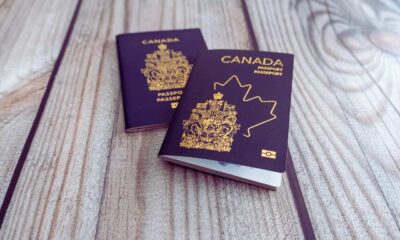Family Sponsorship
Video Call Marriages Aren’t Approved for Canadian Immigration

Immigration, Refugees, and Citizenship Canada does not approve of video call marriages for Canadian immigration. Yes, both the partners are required to be in the same room to get married for spousal sponsorship. Canada’s immigration department does not recognize virtual marriages for family-class sponsorship. In 2015, IRCC came up with a policy that only Canadian Armed Forces members who are married from a distant location can only sponsor their spouses, in case of a certain situation of virtual marriage or by proxy.
This decision was made to prevent forced marriage for immigration. Proxy marriage is when the couple is not physically present and is represented by other people at the solemnization of the marriage. In a quest to prioritize the vulnerability of women to immigration and forced marriage, the federal government does not approve of the video call or proxy marriages.
One can be exempt from this reform if they’re in Canadian Armed Forces. The marriage will be approved if:
• One could not be present physically for the marriage due to travel restrictions related to the service
• The marriage took place outside of Canada
• The marriage is registered in a country where the proxy is legal
How to bring your spouse to Canada?
If you have married on a video call, it does not conclude that you’re completely out of luck. You can sponsor your spouse under a common-law partnership, as long as you meet all the qualifying requirements and have been living together for over a year.
In case, you have got married on a video call and have proof of your relationship, then you’re not required to apply under the common-law partnership, humanitarian and compassionate consideration can be applied in this scenario. It is specifically drafted to offer flexibility towards vulnerable situations and enable family reunions. To qualify under this case, one needs to have significant compelling circumstances. If your spouse or partner is not able to apply from Canada or does not legally reside in Canada at the time of application, outland sponsorship is the only way to go about it.
To sponsor a spouse or partner under the Outland application class, the couple needs to be in one of the following types of relationships:
• The couple is legally married or the marriage is valid under the law of the jurisdiction where it was registered and under Canadian law
• Common law, where the couple is cohabiting or has cohabited with the partner in a marriage-like relationship for at least one year
• Conjugal partnership, where the couple is in an ongoing and committed relationship for at least one year however due to circumstances such as an immigration barrier or marital status, both cannot live together.
Furthermore, they must also meet the following criteria:
• The sponsor is required to be a Canadian citizen or permanent resident
• The sponsor and the sponsored person must be a minimum age of 18 years
• The sponsor must not have sponsored a spouse in Canada in the last five years while applying
• The sponsor or sponsored person must not be charged with a serious offense or bankruptcy.


























